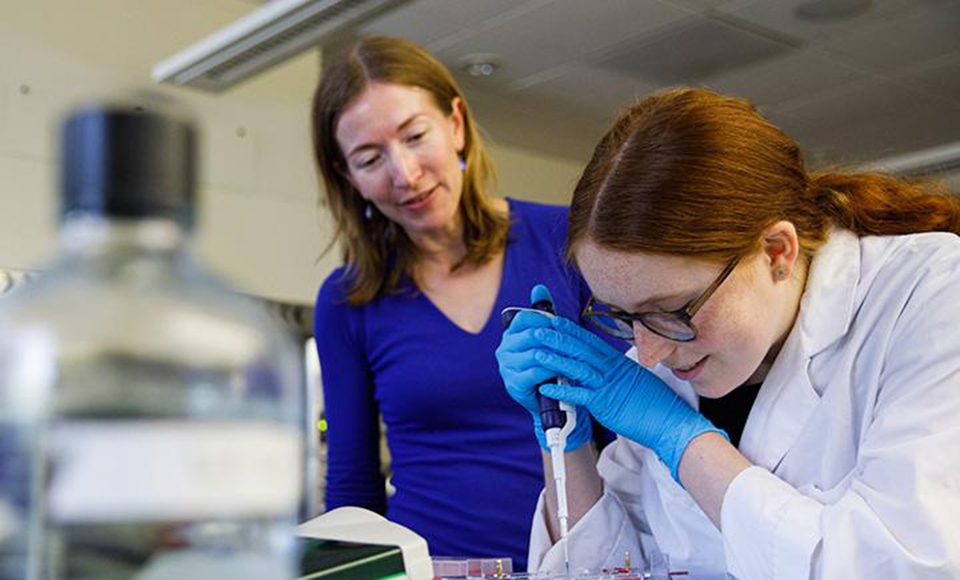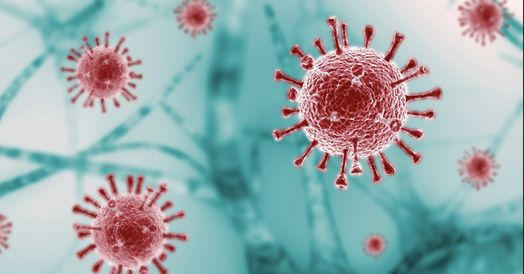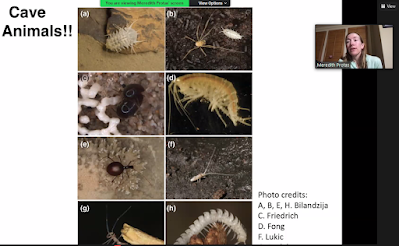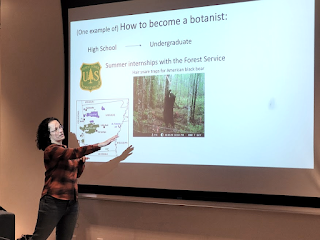by Samantha Dvorin, Archie Williams High School
Meredith Protas is an associate professor and MS Biological Sciences Director at Dominican University. Her lab investigates the evolution and genetics of cave-dwelling creatures like crustaceans. Previously, she did research at UC Berkeley on cave-dwelling crustaceans and studied the genetic basis of human eye disease at UCSF. She has a B.A. in biology from Pomona College and a Ph.D. in Genetics from Harvard. On Wednesday, November 16, 2022, Dr. Protas presented “The Genetics Behind Eye Degeneration in Cave-dwelling Crustaceans” at the Marin Science Seminar. We asked her some questions about what she does.
1. What made you interested in studying cave crustaceans and evolutionary biology in general?
I felt like there were a lot of interesting questions in cave biology and I wanted to understand how the same things (like eye loss and loss of pigment) happened in very different organisms.
2. How are the cave-dwelling and surface-dwelling forms of the isopod crustacean different?
There are lots of things, but some examples include loss of eyes, loss of pigment, and longer antennae.
3. What is your favorite crustacean or cave-dwelling creature in general?
I like Proteus anguinus, which is a cave-dwelling salamander. It’s known for having an unusually long lifespan.
 |
| Proteus anguinus, also known as Olm |
4. Since many animals lose traits they no longer need (like how many cave animals lose their eyes and pigment), are there any traits you think humans will lose as we continue to evolve?
That’s a good question- it’ll depend if losing something doesn’t cause some extra negative things from happening but also if there is an advantage to that loss. Also, it’ll depend if the loss gives humans a reproductive advantage.
5. What is hands-on field work like (ie. exploring caves and collecting samples)?
We don’t do much of this currently, but I have gone to caves to collect animals. Then we bring them to the lab and work with them there.
6. What does a day in the lab with your Dominican University students look like?
We tend to do a lot of molecular work- PCR, DNA extraction, and gel electrophoresis.
 |
| Dr. Protas in the lab with a student |
7. What advice would you give to young people interested in genetics and scientific research?
Find some interesting questions and see how you can be a part of answering them.
8. Are there any projects you are working on right now?
Yes, using some genomic techniques and also looking at variation present in the surface form.
 |
| Dr. Protas' Zoom Seminar |
Learn More:
- https://works.bepress.com/meredith-protas/
- https://marinscienceseminar.com/blinded-by-the-lack-of-light/

















